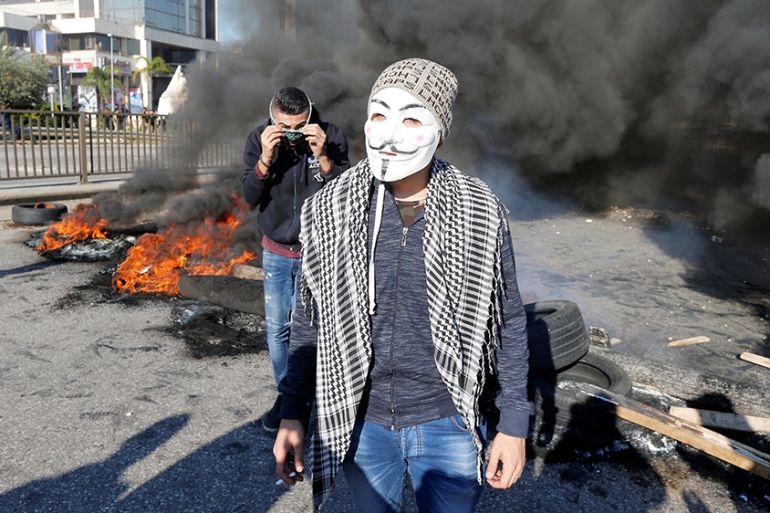Lebanon: Banks asked to review politicians’ fund transfers abroad
Central bank move may signal probe of movements of money out of Lebanon as political and economic crisis accelerates.

Lebanon‘s central bank has asked banks to review transfers of funds abroad by politicians and government employees between October 17 and December 31, when anti-government protests led banks to enforce informal capital controls that blocked such transfers.
The move appeared to be a step towards probing movements of money out of Lebanon by politicians and influential people after a long-brewing economic and political crisis accelerated in October with the onset of mass protests that swept the nation.
Keep reading
list of 3 itemsLebanon’s central bank told to hold off on Eurobond plan: Sources
Protesters block roads in Lebanon as anti-gov’t rallies resume
A January 9 circular from the bank’s anti-money-laundering unit asked banks to identify the source of funds deposited in overseas accounts and to report any suspicious activity involving such accounts.
The circular, seen by Reuters News Agency on Thursday, asked banks to comply by January 31.
The central bank did not immediately respond to a Reuters request for comment.
A separate circular dated January 14 from Lebanon’s banking control commission asked banks for the dates and sizes of transfers to Switzerland since October 17, without asking for the names of the customers who made the transfers.
It asked banks to provide the information within a week.
Lebanon’s economic crisis intensified last year as hard currency remittances from abroad slowed down, leading to a shortage of dollars needed to finance the state’s deficit and import needs. Seeking to prevent a massive outflow of money from the country – so-called “capital flight” – banks have been imposing tight controls on access to cash and transfers abroad since October.
Anger at the banks helped fuel violent protests in Beirut on Tuesday during which a number of banks were vandalised.
Central bank governor Riad Salameh, in an interview with Lebanese broadcaster MTV last week, said he had been asked to investigate transfers that took place after October 17.
After a meeting with Salameh on Wednesday, caretaker Prime Minister Saad Hariri said there was a “campaign to uproot” Salameh, who has been in his post since 1993, and that he was being unfairly blamed for Lebanon’s financial problems. Hariri added that Salameh had immunity “and nobody can dismiss him”.